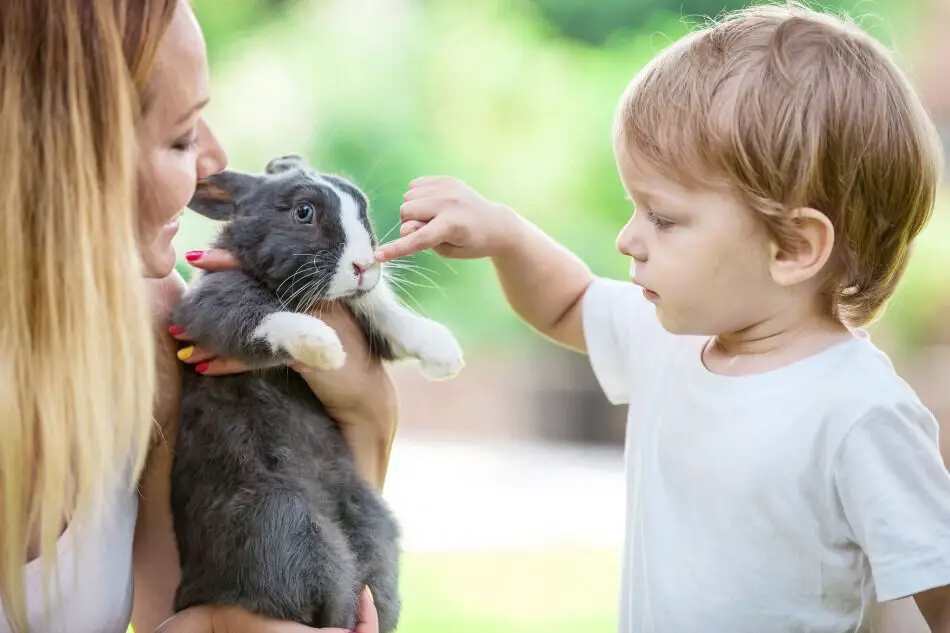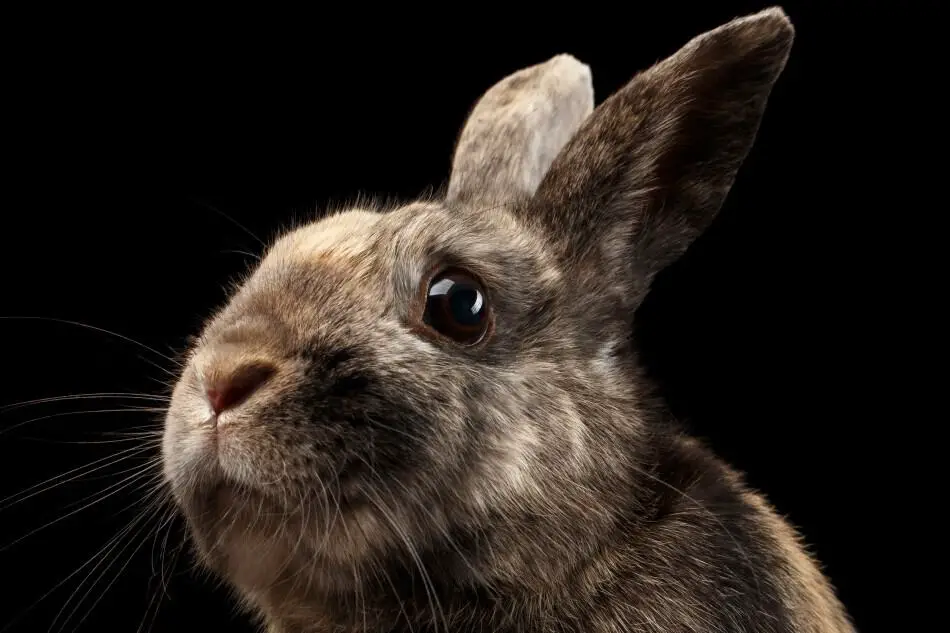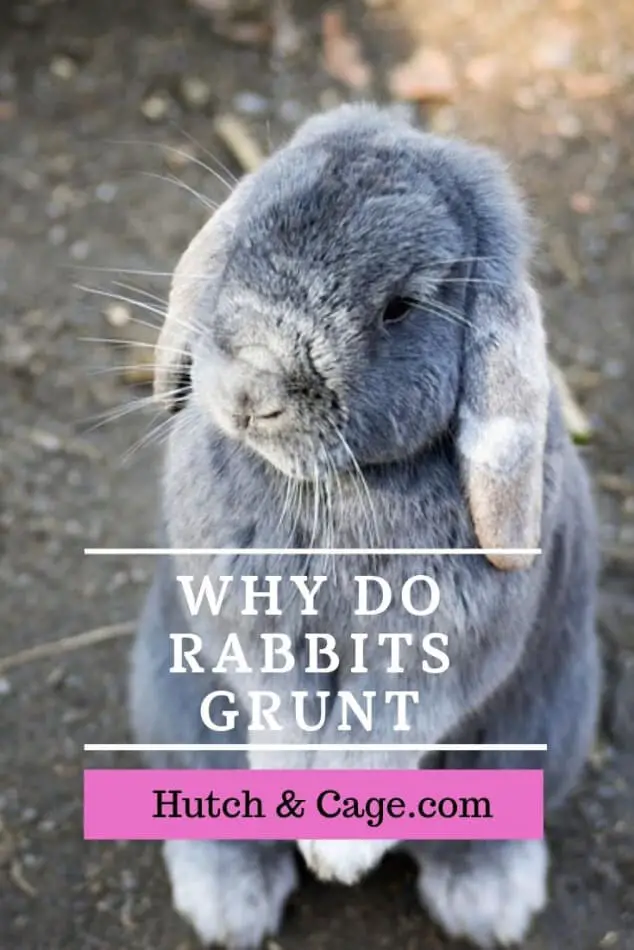Though rabbits are considered to be a quiet pet they do communicate vocally with both humans and their own species. In fact, they have a complex language which is all their own, through which they can tell us all sorts of things. But why do rabbits grunt?
Of all the sounds that rabbits make, and there are a few, the grunt seems to be the most commonly heard and reported.
However, very few rabbit owners know what their bunny is trying to communicate to them, so cannot respond appropriately.
Why do rabbits grunt?
Grunts are generally made when a bunny feels threatened or does not want to be handled. It is their way of saying ‘back off’ or ‘leave me alone’ and is certainly a sign of disapproval. Grunting is a good sign that your rabbit is angry.
Table of Contents
So, Why Do Rabbits Grunt?
Grunting is the sound that rabbits make when they are angry about a situation. It may be followed by scratching and biting if the owner doesn’t respond as the rabbit would like.
Grunts are generally made when a bunny feels threatened or does not want to be handled. It is their way of saying ‘back off’ or ‘leave me alone’ and is certainly a sign of disapproval.
You may also find some rabbits grunt as a way of signaling what is theirs, and that they don’t want to share. Cages, food, and areas of the garden could all be triggers for territorial grunting. Both other rabbits and humans will be warned off by protective bunnies.
What About Other Rabbit Noises Apart from Grunting?
There are several other noises that rabbits use to indicate how they are feeling. Not all of these are made vocally, rather some are made by bodily movements.
The following are the most common sounds bunnies can be heard making and what they are trying to communicate.
Tooth Clicking
Commonly referred to as the rabbit equivalent of purring, tooth clicking is used to indicate contentment and pleasure.
It means that you have one very happy bunny on your hands that is completely relaxed and comfortable.
Tooth clicking often occurs when a rabbit is being petted or stroked.
Tooth Grinding
It is to be hoped that you never hear or witness your rabbit tooth grinding as it is not a good indication.
Severe pain, discomfort, or stress are the feelings that are being communicated here.
Tooth grinding is often accompanied by your rabbit sitting hunched in the corner of the room or cage. Seeking veterinary care is recommended in this situation.
Honking
Second in commonality to grunting, honking is a sound most often made by un-neutered male rabbits. It is a sign that they want to mate and is often accompanied by the circling of another rabbit.
Spayed females and neutered males also make the honking noise as a sign of eagerness or excitement.
Feeding time and when chasing each other around are times when you can expect to hear this sound.
Both female and male rabbits may also honk at you, their owner. It is a way of getting your attention and is often accompanied by them sitting at your feet.
Thumping
Thumping is an iconic movement and sound created by the rabbit and made most famous by Thumper in Bambi. It can, however, have various different meanings including ‘I want attention’, ‘I’m annoyed’, and ‘I’m scared’.
Most commonly, nonetheless, it is used to raise an alarm of something they have seen and heard. Free-roaming rabbits thump far more commonly than captive ones probably due to there being more dangers in their natural environment.

Screaming
Another sound that you can only hope you never hear is a rabbit screaming which will send chills down your spine. This is for two reasons. One, it sounds eerily close to the sound of a frightened child; and two, it indicates a mortal terror.
Rabbits only scream when they are dying or are being chased by a predator. They do not cry wolf; screaming is serious.
Whining/Whimpering
You could say that whining and whimpering are used by rabbits as an alternative to grunting. It indicates that they do not want to be handled or that they are unhappy with their environment.
Pregnant does commonly whine or whimper when placed in a space with another rabbit. It can be seen as a type of noisy protest.
Hissing
Used to warn off other rabbits, hissing sounds exactly like you would expect. It is not commonly associated with use around humans so is not an often-heard sound.
Do Rabbits Communicate in Any Other Way?
Like most other animals, rabbits not only communicate in vocal ways but also by body language. In fact, there are far more ways that rabbits communicate soundlessly than there are by making noises.
Here are just a few to give you examples of rabbit silent communication.
Ear Signals
A rabbit’s ears are its radar used for tuning in to what is going on around them. Holding both ears forward, indicates to others that something is going on, whilst both ears back tell us they are resting and relaxed.
One forward and one back means that they are aware of something happening, but that it doesn’t deserve their full attention yet.
Mounting
If your rabbit is mounting, they are hormonal, and it may be time to think about spaying or neutering them. In already neutered rabbits, mounting is a way to show dominance and tell everybody who is boss!
Spraying
Another sign that it is time to spay or neuter your rabbit, spraying is a way to mark territory. Interestingly, both female and male rabbits spray and they are not fussy over where they do it.
Fences, walls, other pets, even you, nothing is off-limits. Rabbits are going to tell you this area is their turf and one hop from them certainly gets the spray flying.
Nose Nudging
When a rabbit nudges you with its nose, they are saying either ‘get out of my way’ or ‘give me attention and pet me now’. It is up to you to decide which your rabbit is saying but it is more likely that with humans they are seeking attention.
Tail Wagging
It may surprise you to learn that rabbits can and will wag their tails. However, unlike with dogs, it is not a sign of being happy. Rather, it is a signal that they are being defiant and telling you ‘You are not the boss of me’.
Nipping
A little pinch or a nip does not only signify that your rabbit is highly disgruntled with you. It can also be used in a grooming sense as in saying ‘I like that you pet me, so I’m going to groom you too’.
Licking
Unlike dogs, rabbits do not lick for salt but rather, out of affection. It is their way of saying ‘I love and trust you’ and something that you should feel honored by since they do not make a habit of doing it.
Dancing
If you see your rabbit dashing about, kicking up their heels, and making 180 degree turns in the air, just sit back and enjoy the show. Your rabbit is most likely in seventh heaven and communicating this through dance to you.
Conclusion: Why do rabbits grunt?
It goes without saying, though we’re going to say it anyway, that learning to know what your rabbit is trying to communicate to you is highly beneficial.
It will give you a heads up to remedy situations that they are unhappy with, and to enjoy the time with them when they are happy.
Learning what your bunny is saying can be a lengthy process, where only patient observation over time will give you the best picture. It is, however, worth putting the time and the energy in regarding knowing what your rabbit is trying to tell you.
This is due to understanding and interacting with your rabbit based on knowing what they are saying being one of the greatest joys of sharing your home with one.
If your rabbit grunts, then you know something is wrong and needs addressing quickly.
- What To Put In The Bottom Of A Rabbit Cage |5 Best Solutions
- Best Rabbit Hay Feeders 2023 Review | Top 10 Hay Feeders
- 7 Best Rabbit Foods | 2023 Buyer Guide
- Why Do Rabbits Grunt? What Do All Those Rabbit Noises Mean?
- How To Safely Clean Your Rabbit’s Feet






